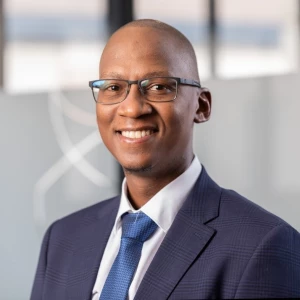Just wondering, how many interviews can I expect?
Will any interviews be in person?
Would be good to also understand the type of cases I can expect from R1 to R2.
Just wondering, how many interviews can I expect?
Will any interviews be in person?
Would be good to also understand the type of cases I can expect from R1 to R2.


Hi there,
For McKinsey its all about the HOW you approach the case, not WHAT you know about a specific industry or function.
Hence, focus on
Do not focus on
Expect
I have written a detailed insider perspective on the McKinsey case interview here: https://www.preplounge.com/en/mckinsey-interview
The difference between a McKinsey case and a non-McKinsey case first and foremost lies in the interviewer-led format as you are aware. Every case you have in this case book can be asked from an interviewer-led perspective.
In the McKinsey interview you will have to answer three different questions types - broadly speaking:
While in candidate-led cases, they should arise naturally when you drill down into your structure, in McKinsey interviews, the interviewer will bring them up in succession.
The second big difference lies in the nature of questions asked at McKinsey. At the core, McKinsey wants to see creative ideas communicated in a structured manner, the more exhaustive the better.
As a result, McKinsey cases will usually be very creative in nature and not something that can be solved by looking at industry frameworks or industry trends.
For a concrete example, please reach out (I had to take the link out of this reply).
The example of the machine breakdown in the lower part of the article is a real McK case question and demonstrates the creative and out-of-the-box aspect of their interviews.
Be aware that frameworks were applicable in the 2000 years, the era of Victor Cheng and Case in Point. McK has long caught up on this and the cases you will get during the interviews are tailored in a way to test your creativity and ability to generate insights, not remember specific frameworks.
The third big difference is how to answer the questions in a McKinsey interview. Since the interviewer guides you from question to question, you need to be in the driver's seat for each question and treat each almost like a mini case in itself.
Your goal should be to come up with a tailored and creative answer that fits the question. The framework should - broadly speaking - follow these three characteristics:
The firm wants to see exhaustive and creative approaches to specific problems, which more often than not do not fit into the classic case interview frameworks (or can be derived from industry drivers and trends) that were en vogue 10 years ago...
Again, this only applies if everything you say
As a result, you can spend several minutes, guiding the interviewer through your structure!
Now for Structure and Exhibit Interpretation, there is also no right or wrong answer. Some answers are better than others because they are
That being said, there is no 100% that you can reach or the one-and-only solution/ answer. It is important that your answers display the characteristics specified above and supported well with arguments.
As for Math questions, usually, there are answers which are correct (not always 100% the same since some candidates simplify or round differently - which is ok), and others that are wrong, either due to the
The difference in format and way of answering a question is the reason why I recommend preparing very differently for McK interviews vs. other consultancies.
Now that you know about
you can start using the cases you already have and approach them in a McKinsey-specific way.
If you have any more questions, please feel free to reach out for some free guidance on how to come up with your own McKinsey-type cases on the spot.
Also, check out this answer I wrote on how the cases McKinsey posts online are comparable to the actual interviews: https://www.preplounge.com/en/consulting-forum/are-mckinsey-website-practice-cases-representative-for-what-will-come-10002
Cheers,
Florian

In some offices in the USA, McKinsey has 3 rounds of interviews: 1, 2, and 1 interviews respectively.
Check with HR for your specific case.
Best,
Alberto

Hey there,
McKinsey's recruiting processes is typically reviewed regularly. My general good principles advice is that you should always clarify recruiting process questions with the recruiters.
Having said that, from my experience, you can expect between 4 and 5 interviews spread between 2 or 3 rounds
All the best















